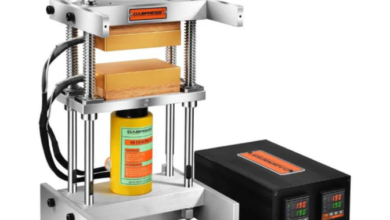Pennsylvania Marijuana in 2025: Medical Updates, Cost Savings, and the Push Toward Recreational

Pennsylvania has built one of the strongest medical marijuana programs in the country, with hundreds of thousands of registered patients and a robust network of dispensaries. Over the last year, the state has seen continued growth, new product availability, and an intensifying push to bring recreational legalization into reality.
While lawmakers debate how and when to roll out adult-use sales, medical patients remain at the center of the program. For those renewing their card, connecting with a medical marijuana doctor online remains the most efficient and secure way to stay compliant. In this article, we’ll break down Pennsylvania’s current cannabis landscape, the changes that have taken place recently, and what patients and consumers should expect next.
The State of Pennsylvania’s Medical Marijuana Program
Launched in 2016, Pennsylvania’s medical marijuana program has grown into one of the largest on the East Coast. Patients can qualify for a card if they are diagnosed with one of the state’s approved conditions, which include chronic pain, cancer, anxiety, PTSD, multiple sclerosis, epilepsy, and dozens of other illnesses.
The program offers patients access to a wide range of products, including:
- Flower for inhalation and vaporization
- Concentrates and oils for stronger relief
- Tinctures and capsules for precise dosing
- Topicals and lotions for localized symptom control
- Edibles in compliant forms such as capsules and lozenges
Over the past year, Pennsylvania regulators have allowed dispensaries to expand product availability, and operators continue to push for innovations such as infused edibles and pre-rolls, which are expected to roll out more widely as demand grows.
See also: Cannabis That’s Clean, Consistent, and Curated Just for You
Medical Card Renewal: Still Essential in 2025
Even as discussions around recreational legalization intensify, holding a valid medical card remains vital for Pennsylvanians who rely on cannabis as part of their healthcare. Patients who keep up with their medical card renewal benefit from:
- Tax savings: Medical products are typically exempt from the excise taxes that will be placed on recreational sales once they launch.
- Expanded purchase limits: Medical patients enjoy higher possession limits than recreational consumers will likely have.
- Priority access: In times of supply shortages, dispensaries often prioritize medical patients first.
- Stronger legal protections: Cardholders have clear legal standing to possess, purchase, and use cannabis under state law.
Renewals can be handled quickly by connecting with a medical marijuana doctor online, making the process easier than ever before.
Recent Program Changes in Pennsylvania
In the last year, Pennsylvania has implemented a handful of notable updates to its medical marijuana program:
1. Expanded Dispensary Access
The number of licensed dispensaries has increased, with more satellite locations opening across the state. This expansion has improved convenience for patients in rural areas who previously had to drive long distances for access.
2. Telemedicine Flexibility
Regulators have continued to support telemedicine, allowing patients to meet with a medical marijuana doctor online for both first-time certifications and renewals. This change, first introduced during the pandemic, has now become a permanent fixture of the program.
3. Product Variety Growth
Operators have introduced more product options, particularly in the flower and concentrate categories. The addition of new strains and refined formulations has given patients better opportunities to customize their treatment.
4. Price Stabilization
As competition among dispensaries increases and cultivation capacity expands, product prices have started to stabilize. Patients are seeing more deals, bulk discounts, and loyalty programs providing meaningful cost savings.
The Push for Recreational Legalization
Perhaps the biggest storyline in Pennsylvania is the movement toward adult-use cannabis. Neighboring states like New Jersey, New York, and Maryland already operate recreational markets, and Pennsylvania risks losing tax revenue and business opportunities if it lags behind.
In the past year, lawmakers have introduced new proposals aimed at legalizing recreational cannabis. These bills typically include:
- A regulated system of cultivation, processing, and retail sales
- A sales tax or excise tax structure to generate state revenue
- Provisions for social equity and expungement of past cannabis convictions
- Allowances for adults 21 and older to purchase and possess cannabis
While debate continues, momentum is stronger than ever. Patients and advocates expect that Pennsylvania could see recreational legislation finalized within the next legislative session.
How Recreational Would Impact Medical Patients
The prospect of adult-use legalization has left many patients wondering if they will still need their medical card. The answer is yes. Even in states that legalized recreational cannabis, medical programs continue to deliver key advantages:
- Lower Taxes: Medical cannabis is cheaper because excise taxes apply primarily to recreational sales.
- Product Access: Some products especially high-potency items remain exclusive to medical patients.
- Purchase Limits: Patients can typically buy larger quantities than recreational consumers.
- Ongoing Medical Oversight: Working with a medical marijuana doctor online ensures that cannabis treatment remains personalized and medically guided.
For this reason, medical card renewal is strongly recommended, even if recreational becomes available.
Cost Savings and Patient Benefits
Cost savings remain a primary driver for patients who maintain their medical status. For example, a patient purchasing cannabis monthly saves significantly by avoiding recreational taxes. Additionally, many Pennsylvania dispensaries offer:
- Discount programs for veterans, seniors, and those on disability benefits
- Bulk purchase deals on flower and concentrates
- Loyalty rewards for frequent patients
As new products like infused edibles and expanded flower options hit the market, patients can enjoy both better selection and lower costs compared to potential recreational buyers.
The Role of Telemedicine in 2025
Telemedicine has been one of the most patient-friendly changes in Pennsylvania’s program. Rather than traveling to a physical clinic, patients can securely meet with a medical marijuana doctor online to receive their certification or complete a medical card renewal.
This convenience is especially beneficial for patients dealing with mobility issues, chronic illness, or those living far from urban centers. It has also helped reduce wait times and ensure continuous access to treatment.
What’s Next for Pennsylvania Cannabis?
Looking ahead, the following trends are likely to define the next 12 months:
- Recreational legislation progress – Lawmakers will continue debating adult-use legalization, with growing pressure to match neighboring states.
- More dispensary openings – Patients can expect continued expansion in the number of locations statewide.
- Greater product innovation – Expect new formulations, edibles, and possibly pre-rolls as regulations evolve.
- Enhanced patient services – Platforms like MMJ.com will keep streamlining access to evaluations, renewals, and educational resources.
Conclusion
Pennsylvania’s cannabis program remains strong, with new changes enhancing patient access, product variety, and affordability. While the conversation around recreational legalization grows louder, medical marijuana patients should continue prioritizing their health by maintaining their card, taking advantage of cost savings, and working with a medical marijuana doctor online for ongoing guidance.
As the state prepares for its next steps, patients who complete their marijuana card renewal through trusted platforms like MMJ.com will remain best positioned to benefit today and into the future.




